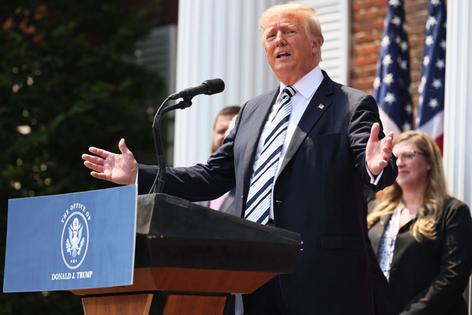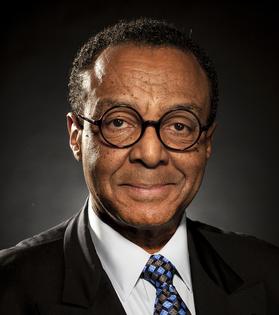Donald Trump vs. Big Tech: If You Can’t Beat ’Em, Raise Money Off of ’Em
Former President Donald Trump’s lawsuit against Facebook, Twitter and Google’s YouTube social networks is a lot like his presidency: full of sound and fury, signifying spectacular fundraising opportunities. m’
Yet, as often happens in his political quests, he also manages to raise some important questions that have troubled other people’s minds, such as mine, about the runaway growth and power of the tech giants, even as he provides pitifully inadequate answers.
Trump’s gripes with Big Tech are well-known and deeply felt. His beloved Twitter account was booted offline two days after the Jan. 6 attack by hundreds of his supporters on the Capitol. Soon he and his supporters lost accounts on Facebook, Instagram, Snapchat, Twitch, Spotify, Shopify and others.
Of course, he’s perfectly free to move his account or set up a social network of his own, as he immediately threatened to do. But his attempts to find an alternative network were roundly rebuffed and he scrubbed his new blog page, “From the Desk of Donald J. Trump,” after less than a month.
With that, he demonstrated how much of a near-monopoly the big tech firms hold on the market for social networks. But as the failure of once-popular networks such as Myspace and Friendster — remember them? — show, a near-monopoly doesn’t mean competition is dead, even when it seems to be ailing.
Nevertheless, Trump has turned to the courts in a lawsuit that charges “censorship” violations of his First Amendment rights by the tech giants, even though the First Amendment specifically protects speech from interference by government, but not by private-sector companies.
To get around that important technicality, Trump, as the lead plaintiff in a class-action lawsuit he filed Wednesday in the U.S. District Court for the Southern District in Florida, makes the far-fetched argument that the tech companies are “state actors,” which the Constitution describes as a person acting on behalf of a government body. Similar arguments have failed in the past, legal scholars say, which is not surprising, since Facebook appears to be acting on behalf of itself, not a government body.
In other words, the First Amendment cuts both ways. It protects free speech and free press, including efforts to force your speech or press onto somebody else’s tech company against their wishes.
Yet, I begin to argue with myself when I am troubled by the concentration of power that allows the big three tech firms to have such outsized power in determining who and how many can participate in the internet’s public square.
Even Facebook founder Mark Zuckerberg, apparently hoping to avoid government action, formed an Oversight Board to handle cases like Trump’s complaint. The board kicked Trump’s suspension back to Zuckerberg, complaining that the “indefinite” ban was too open-ended. The company decided to suspend Trump’s account for two years, then “look to experts to assess whether the risk to public safety has receded.”
...continued
(c) 2021 CLARENCE PAGE DISTRIBUTED BY TRIBUNE MEDIA SERVICES, INC.










